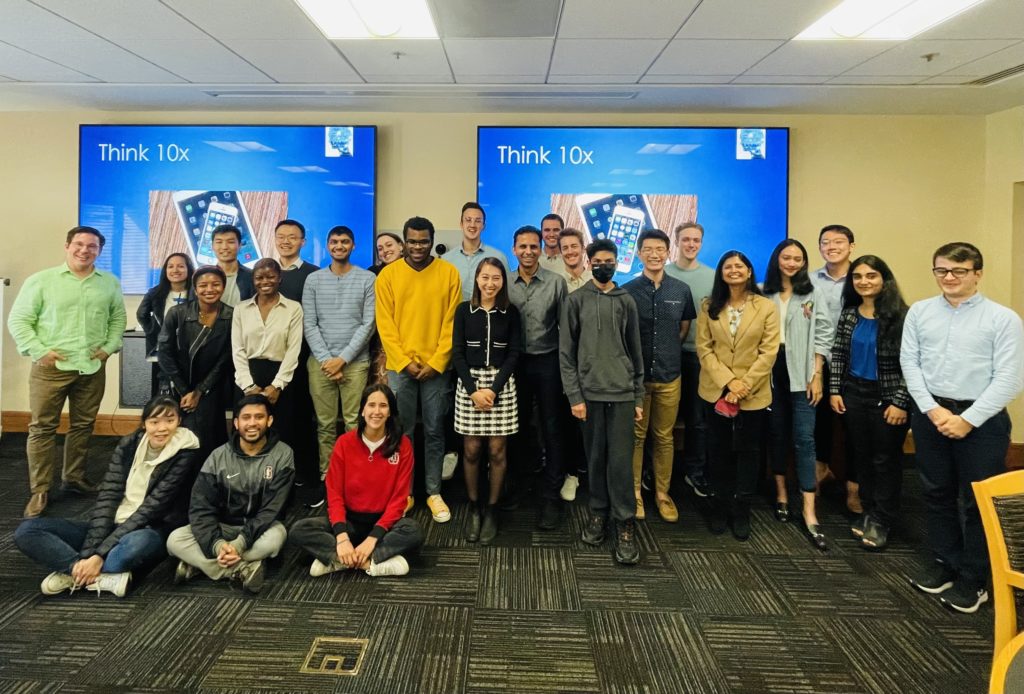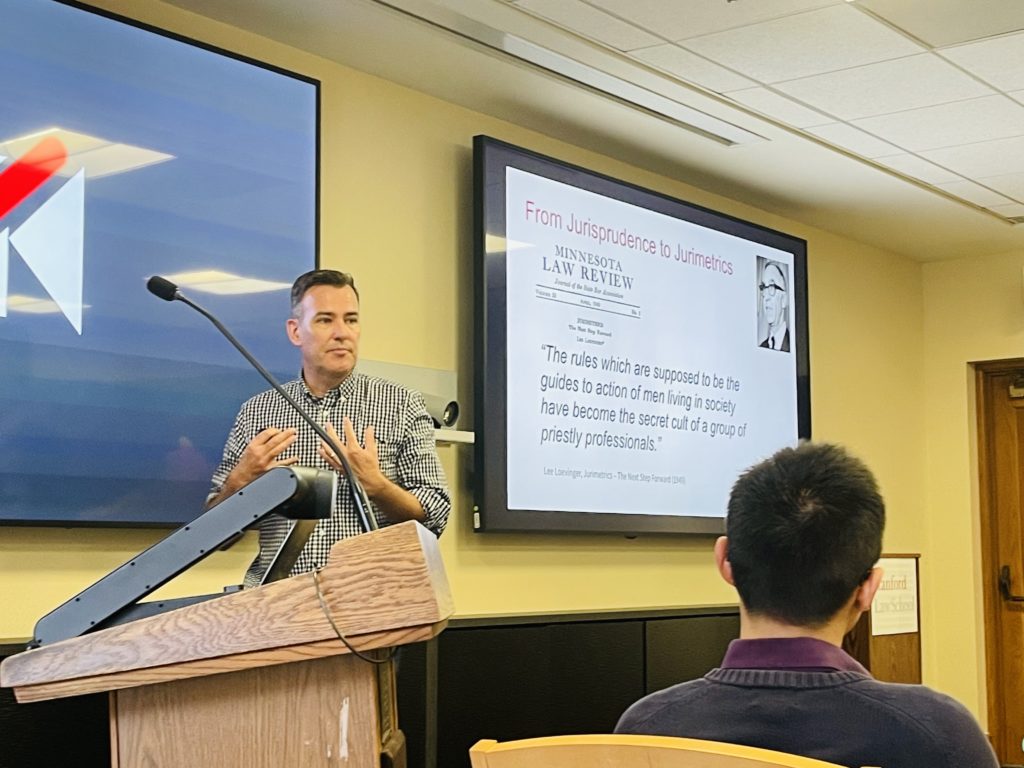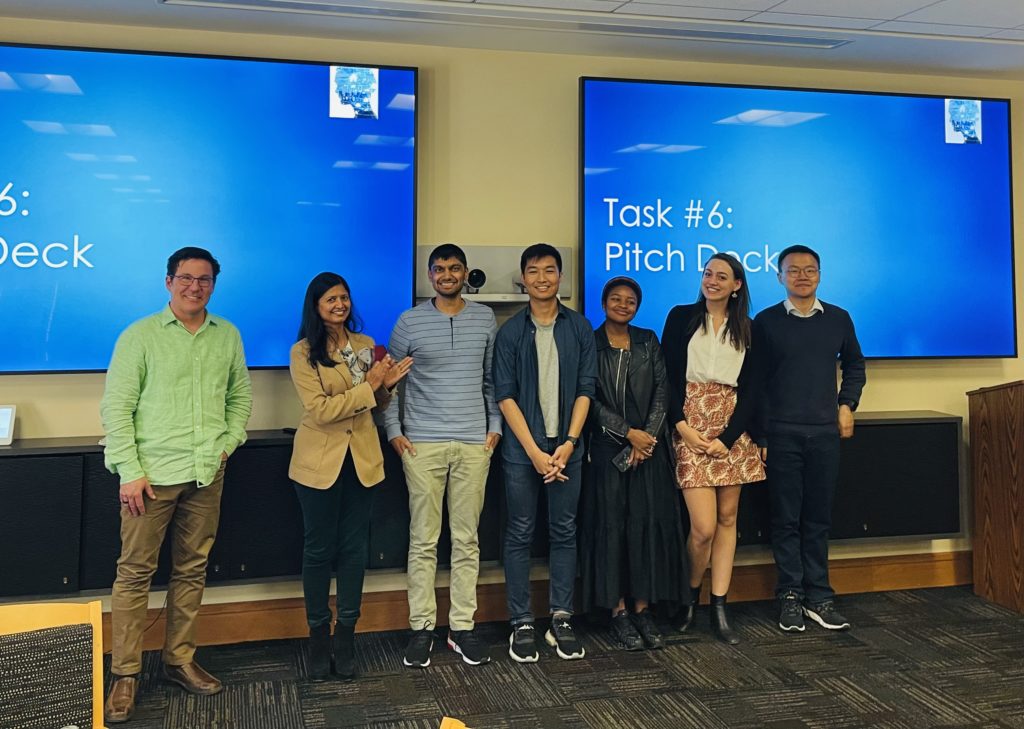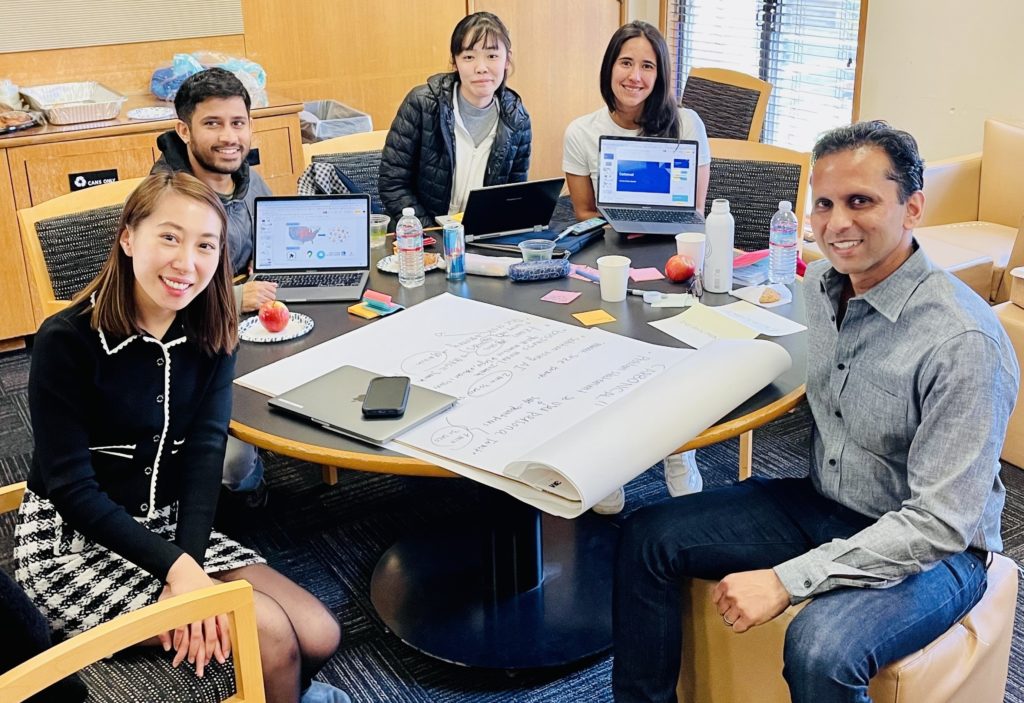Interdisciplinary Class for Social Impact: Stanford Law, Computer Science and Business School Students Apply Artificial Intelligence for Socially Conscious Futures

In April, the Stanford Center for Legal Informatics (CodeX) and Stanford CS+Social Good sponsored the Social Impact, AI and Law accelerated class, an experiential learning experience involving 25 Stanford students from the law school, engineering/computer science department, and graduate school of business. Students learned concepts in the areas of artificial intelligence (AI), law, and ethics from Stanford lecturers. Students were grouped into five cross-disciplinary teams that applied those concepts to develop AI-driven startups to address inequities in 1) education; 2) policing based on racial background; 3) legal literacy; 4) access to legal services; and 5) environmental conservation and impact. “The goal of the class is to be part lecture, and part creation. We aim to equip student teams to immediately apply the teachings to design innovative and sustainable startups to address some of the most pressing societal issues of our time.” said Jay Mandal, Stanford Codex Fellow, who co-organized and co-lectured in the class alongside CodeX Fellow Dr. Megan Ma and Daniel Linna, CodeX Affiliated Faculty.
Cross-Disciplinary Learning to Inspire Ideas
The students were first given an in-depth lecture in the area of artificial intelligence by Roland Vogl, Lecturer of Law at Stanford Law School and Stanford Codex Executive Director. He also gave an overview of the legal technology landscape and emerging use cases in the computational law space. This introduced students to the tools and technologies students would use to build their startups.

Megan Ma then followed with a lecture on the methodology and significance of interdisciplinary work, seen through the lens of translation. “Translation as Creation,” as Megan describes, is being able to appropriately map concepts across disciplines and languages, in effect understanding how the notions of similarity and difference play a substantive role in the creation of new technologies for law.
Dan Linna discussed the legal, ethical, and fairness issues faced when using AI/ML and computational technologies. He noted, “AI has great potential to help solve social problems, but we need to think about ethics, fairness, and the developing law in this area from the beginning, not as an afterthought. In designing the class, we’ve focused on providing frameworks to facilitate a collaborative, iterative process for tackling challenging social problems responsibly.”
Jay Mandal then lectured on the challenges in developing new technologies in emerging spaces, but balancing the needs of ethics and regulations to help create disruptive yet sustainable businesses.
To help inspire students to develop innovative ideas in class, Stanford Computer Science Professor Monica Lam shared a vision about an open worldwide voice web that centralized all voice search and data into a single platform, like the world wide web.
These lectures were interspersed with team exercises to challenge the five student teams to immediately apply concepts from each of these lectures into their thinking and final startup pitches.
Immediate Feedback Loops = Faster Learning
“Student teams participated in these team exercises in order to stress test their startup ideas and thinking throughout the course. We wanted students to experience the ups and downs of a startup, including standing up to critics and challenges to their ideas”, noted Mandal. In three separate sessions, students received in-depth feedback from experts to crystallize their understanding of class concepts and refine their business ideas, including 1) interview sessions with subject matter experts from industry on their specific use cases; 2) four shark tank style pitches to separate panels of product, AI, and engineering executives from Google, Meta, Doordash, and other Silicon Valley startups; and 3) final pitches of their startup ideas to a panel of distinguished judges: Aparna Sinha, Senior Director of Product Management at Google Cloud, and Dan Siciliano, Executive Chairman of the Federal Home Loan Bank of San Francisco and Chair of the American Immigration Council.
“I was challenged to think outside of the box, to learn innovative ways to use my creative power for social good (climate mitigation), to build an AI project in less than two days, and to pitch it to a group of coaches and judges! It was a unique opportunity that reaffirmed how extraordinary the whole Stanford University experience has been, and reminded me of how the dream of giving back to my community is what brought me here.” said Juanita Fonseca-Duffo LLM ‘22, Stanford Law LLM and Knight Hennessy Scholar.
The Final Startup Ideas
Aparna Sinha (BS/MS Electrical Engineering ‘01, PhD Electrical Engineering ‘05) noted the following after judging all the final startup pitches, “Each year Stanford’s top talent comes together in this class across the business, law, and engineering disciplines to peer into the future and propose AI centric solutions to our most pressing problems, from Climate change to education and racial equity. Only at a university like Stanford is it this easy to get such diverse great young minds working together. When that happens it’s really amazing what we can do in even just a few focused days! No wonder Stanford is the hotbed of innovation in Silicon Valley.”
Awarded Best Overall:
ClaimIt is a solution to tackle commercial and residential real estate legal issues – focusing on the analysis of legal contracts using NLP and AI/ML – to help clients get cost-effective legal answers/solutions based on benchmarks and automation. “We didn’t expect that many entrenched legal hurdles hindering access to justice and legal services — breaking one wall exposed another 18 smaller walls within it. This was a great experience putting on our thinking caps to understand the legal landscape and how technology, ethics, and social impact all intersect,” said Darren Wong, MS ‘22, Stanford Civil and Environmental Engineering.

Awarded Most Innovative Use of AI:
Law Law Land is an engaging, gamified app to educate high school students on the basics of legal literacy, and incorporate this into their curriculum. The app involves a series of avatar-based games that would incentivize students to learn different facets of law and dispute resolution.

Best Social Good:
CarbonCal leverages data on individual daily movement, aggregated transport data, and corporate climate data to reduce an individual’s carbon footprint. CarbonCal’s data-driven system incentivizes individuals to make more conscious decisions on their transportation choices.

Zeze, an EdTech solution, creates a personalized, multi-sensory educational tool for students that uses machine learning to adapt to the needs of students. Student team: Favour Nerrise (CS), Brendan Simon Reeves (CS/Symbolic Systems), Jan Jakub Przerwa (Law), Loni Mellilo Cardoso (Law)
OpenView creates a platform that would intake potential cases of racial inequality in policing, serve as a referral service for these cases to qualified lawyers, and also compile and offer data analytics on these cases to concerned governing bodies. Student team: Chijioke Mgbahurike (CS), Teresa Chen (GSB), Cameron Sharp (Law/GSB), Alessia Morales (GSB)
“Students were able to bridge theory with practice, understanding its feedback loop, all within incredibly tight deadlines. This is atypical from current standards of higher education. We wanted to put forward a new model for experiential and multidisciplinary education that we think could be applied to other classes.” noted Dr. Megan Ma, class co-lecturer and co-organizer.
Final Observations and What’s Next?
Based on continued student enthusiasm and passion in this type of multi-disciplinary class, the co-organizers and co-lecturers realized this course was becoming more than just tackling current societal problems. Students are now standing at the frontiers of shaping how technology could enable new forms of social evolution.
Applying the lessons learned from this class, the co-lecturers have already started developing a course that addresses a more overarching question: how could we (re)code our societies to ensure technology may be seen as tools for building more, and not less, inclusive futures? “We are fascinated with the notion of resetting the rhetoric around the role of technology in society – the next iteration of our course would further the interdisciplinary and experiential components of the class by adding a third dimension: future creation,” noted Dr. Megan Ma. The goal would be to involve more faculty across Stanford departments (law, engineering and computer science, and humanities, including sociology, anthropology, linguistics, and gender studies) to participate, guest lecture, and engage in this new venture.
